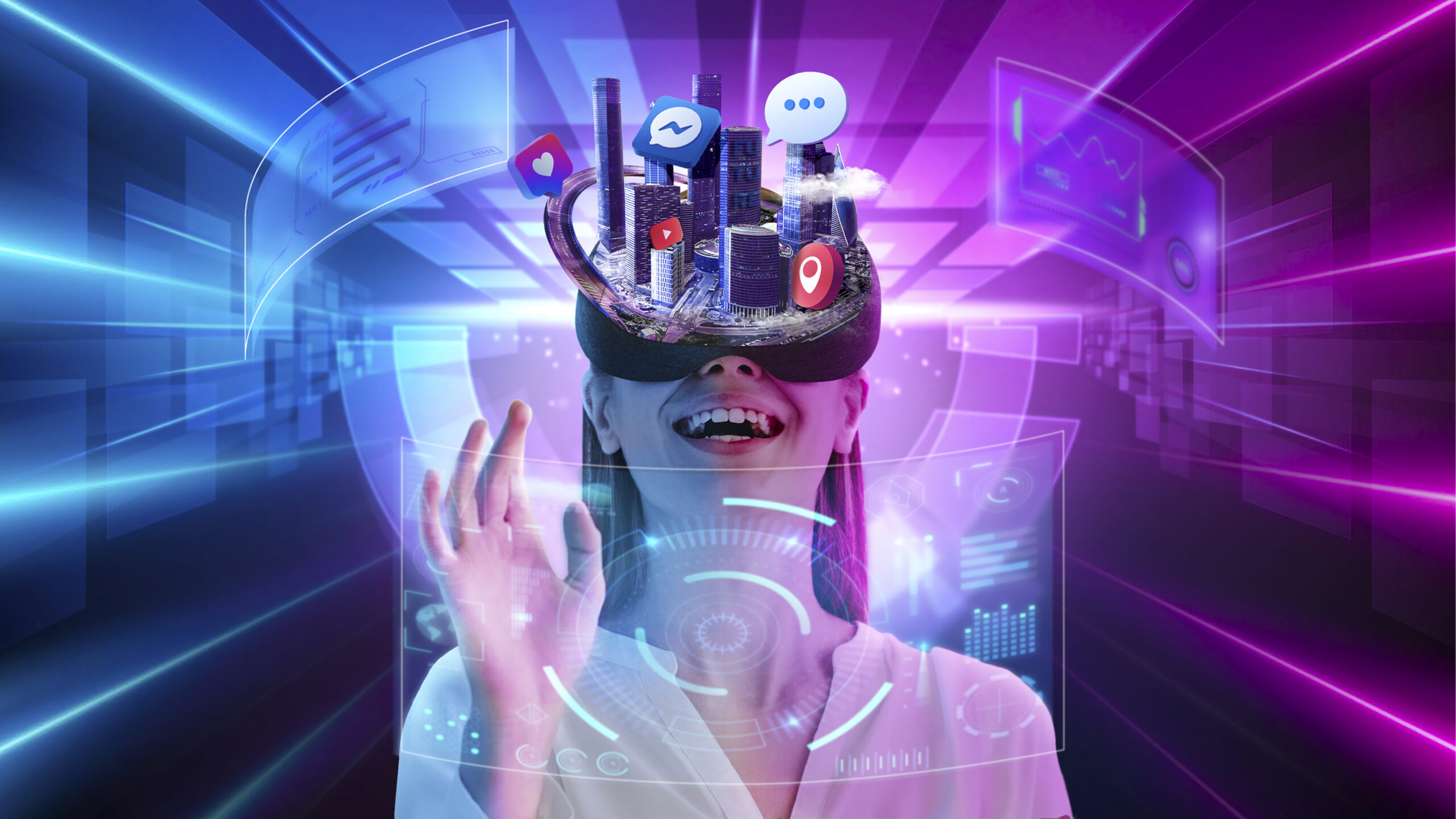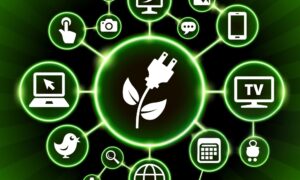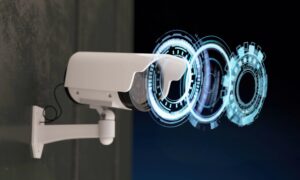Artificial Intelligence (AI) is no longer just a buzzword; it’s a transformative force already reshaping industries and personal lives. While we’ve seen its early integration in our daily routines—from voice assistants to smart devices—by 2025, AI’s capabilities will have evolved significantly. These advancements will revolutionize industries, enhance productivity, and change the way we interact with technology. In this article, we’ll explore the many ways AI will shape our lives in 2025, touching on healthcare, business, entertainment, education, and more.
AI in Everyday Life: Smarter Homes and Personal Assistants
One of the most noticeable shifts AI will bring is the enhancement of smart homes. By 2025, homes will become more intuitive and adaptive to our daily routines. AI-powered smart assistants will manage every aspect of your home—adjusting temperature, lighting, and even cooking meals. Imagine your home recognizing your arrival and automatically setting the perfect lighting, starting your favorite playlist, and preparing your environment for relaxation or productivity.
Smart appliances will become even more connected, helping with tasks like optimizing energy consumption and offering real-time suggestions. For example, AI-powered refrigerators will track ingredients, suggest recipes based on what’s available, and even notify you when supplies are running low. AI will also handle maintenance, reminding you when an appliance needs service, which reduces hassle and prevents breakdowns.
Personal assistants will also become smarter and more capable, integrating with other smart devices to offer seamless control over your environment. They will be proactive, anticipating needs before you ask, from adjusting your schedule to offering personalized health advice based on your activity.
AI in Healthcare: Revolutionizing Diagnostics and Treatment
AI’s role in healthcare will be one of its most significant contributions by 2025. Healthcare professionals will rely on AI-powered tools to enhance their decision-making, speeding up diagnostics and improving the accuracy of treatments. AI will process vast amounts of medical data, such as test results, images, and patient histories, to provide insights into diseases like cancer, cardiovascular conditions, and neurological disorders—often at earlier stages than human doctors can detect.
Personalized medicine will be a game changer, as AI will help develop treatments tailored to an individual’s genetic makeup and lifestyle. By analyzing a person’s specific biology, AI can suggest more effective treatments with fewer side effects, making healthcare more precise.
AI will also play a crucial role in drug discovery. With its ability to process and analyze enormous datasets, AI will speed up the identification of potential drug candidates and treatment protocols, bringing new therapies to market faster than ever before.
Furthermore, telemedicine will become more advanced. AI chatbots and virtual assistants will help patients with preliminary consultations, guiding them through symptom-checking processes and even scheduling appointments. This will ensure more people can receive immediate healthcare guidance, especially in underserved areas.
AI in Business: Automation and Efficiency
In business, AI will drive automation to new heights, particularly in industries such as customer service, logistics, and manufacturing. By 2025, we can expect to see AI-powered chatbots taking over routine customer inquiries, offering tailored support and reducing wait times. These systems will be capable of handling increasingly complex requests, improving the overall customer experience.
Automation in manufacturing and supply chains will also benefit from AI advancements. Autonomous robots will take over repetitive tasks like assembly, packaging, and inventory management, leading to faster production times and fewer human errors. While some worry AI might replace human jobs, the reality will be that it will free up workers to focus on more creative and strategic roles, boosting overall productivity.
In sectors like finance, AI will play a significant role in fraud detection. AI algorithms will analyze financial transactions in real time, identifying suspicious activities and preventing fraud before it occurs. Additionally, AI-driven investment strategies will become common, with algorithms analyzing market trends and making recommendations for portfolio management.
AI in Education: Personalized Learning
In education, AI will bring about a significant shift in how students learn. By 2025, AI-powered tutoring systems will be a mainstream tool for personalized learning. These systems will adapt to each student’s needs, offering customized lessons based on their progress, learning style, and pace. AI will be able to provide instant feedback, ensuring that students grasp concepts fully before moving on to more challenging topics.
Furthermore, AI will assist teachers by automating tasks like grading, lesson planning, and administrative work, giving them more time to focus on student engagement. It will also help identify students who may need additional support, allowing educators to intervene early and provide the necessary resources.
The integration of augmented reality (AR) and virtual reality (VR) with AI will revolutionize immersive learning experiences. Students will be able to take virtual field trips or engage in interactive simulations, enhancing their understanding of complex subjects like history, science, and art.
AI in Entertainment: A New Era of Content Creation
By 2025, AI will drastically change the landscape of entertainment. Content creation will no longer be limited to human creators alone. AI will assist artists, musicians, and writers by generating music, visual art, and even storylines that are indistinguishable from human-made creations. AI algorithms will analyze trends, genres, and audience preferences to produce tailored content, allowing creators to reach specific audiences more effectively.
Streaming services will become smarter as AI improves content recommendations, understanding your viewing habits and moods. Instead of offering generic suggestions, AI will curate personalized playlists and even provide real-time suggestions based on what you’re watching, ensuring you always find something you’ll enjoy.
Additionally, AI will be a driving force behind interactive entertainment, particularly in gaming. In 2025, games will feature storylines and characters that evolve based on player decisions. Using AI, games will create more dynamic, engaging experiences, making every playthrough unique.
The Ethical Challenges of AI
While the benefits of AI are undeniable, there are important ethical considerations that must be addressed. Privacy concerns, especially in areas like healthcare and personal data management, will need to be managed carefully. As AI systems become more sophisticated, there’s also the risk of algorithmic bias, where AI might make decisions that unintentionally favor one group over another.
By 2025, regulations will need to evolve to ensure that AI is developed and used responsibly. Ensuring transparency in how AI makes decisions will be crucial to maintaining trust. Ethical frameworks around the use of AI, particularly in sensitive areas like law enforcement, surveillance, and hiring practices, will be key to ensuring that AI’s integration into society benefits all, not just a few.
The Future of AI: Looking Ahead
As we approach 2025, the impact of AI will only continue to grow. It will touch every aspect of our lives, from our daily routines to the industries we work in and the entertainment we consume. With the right ethical oversight and continued innovation, AI will unlock new opportunities for creativity, productivity, and personal well-being. As we navigate this transformative journey, it’s essential to embrace the power of AI while being mindful of its challenges and ensuring that it’s used for the greater good.



























